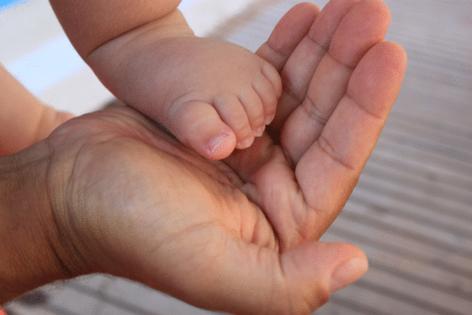Commentary: What to give Americans for Mother's Day? More than a baby bonus
Published in Op Eds
Ahead of Mother’s Day this year, the White House has been exploring various policies to boost America’s low birth rate, including a baby bonus (i.e. government cash transfers at the time of a child’s birth).
This may sound like a strong incentive to have more children, but even though quite a few countries have attempted this (Canada, Israel, Hungary, Germany, South Korea and Russia), the evidence is quite mixed on whether baby bonuses actually increase birth rates.
For example, in Russia, the bonus was huge (the equivalent to 18 months of average wages), and the expensive program led to a 20% increase in births. In Canada, a fairly large baby bonus correlated with only a short-term increase in fertility, effectively incentivizing parents to have their children closer together — not to ultimately have larger families. There was actually no long-term effect on the birth rate.
In one German state, a monthly home-care cash transfer was introduced specifically for families who did not use the local public child-care center. Interestingly, this program led to an increase in births for a few specific groups (single mothers, low-income families and foreign parents), and yet it had no average effect on the total population.
But other government policies that invest in mothers do more consistently incentivize births. There is solid evidence that paid parental leave increases the birth rate. This would fill a shameful gaping hole in the U.S., which currently has no national paid parental leave, leaving many moms (and dads) crawling back to work in rough shape, losing wages to care for their infants or sending not-fully-vaccinated newborns to child care.
Although the data shows that paid parental leave increases the birth rate by only a small amount, it also improves maternal health, prevents RSV, increases children’s education attainment and reduces the likelihood of intimate partner violence. Every other wealthy country in the world has paid parental leave because they recognize the economic and health benefits of this investment.
An expansion of public child care would also increase the birth rate, by relieving the financial burden working parents face if they have a child. In fact, the U.S. does public child care very well on our military bases. Expanding this service would ensure quality and affordable care for all our nation’s children.
Even if a baby bonus isn’t the best way to achieve the administration’s goal, it’s an excellent idea for the U.S. — because currently 1 in 6 American children live below the poverty line. Their families don’t have stable housing, they’re behind on car payments, unable to afford prescription drugs and desperately trying to make ends meet.
Children cannot thrive embedded in the toxic stress of poverty. Even families with incomes well above the poverty line are overwhelmed by the costs of having children (hospital birth! child care! minivans!). As my spouse and I are both working, we pay $2,100 a month for our youngest, and that child care ends at 3 p.m.
If the nation really wants to invest in mothers and propel American children to thrive, a one-time bonus is not enough. It would not address the systemic neglect that is our status quo for child care, maternity leave and child poverty. The baby bonus might be one way to shore up bipartisan commitment to invest in mothers, but a renewed expansion of the child tax credit would be the simplest first step (though Congress recently failed to renew it). This bipartisan-supported tax credit allowed some parents to stay home with their children and also subsidize child care for those who work. It drastically cut the child poverty rate.
Paid parental leave and public child care would indeed increase the birth rate, but by small amounts. These policies are needed because American parents (especially mothers) are screaming for help.
The choice to bring a child into this world is not merely a financial one that can be incentivized with a couple thousand dollars. Creating new life is an act of hope, a commitment to the future and a reflection of deeply held personal beliefs.
Celebrating Mother’s Day with flowers or chocolate or a baby bonus is a nice gesture. But investing in mothers from pregnancy through childbirth and across the years of raising children is what will make a real difference.
_____
(Aine Seitz McCarthy is an associate professor of economics at Lewis & Clark College in Portland, Ore., and a mother of two.)
_____
©2025 Los Angeles Times. Visit at latimes.com. Distributed by Tribune Content Agency, LLC.




























































Comments